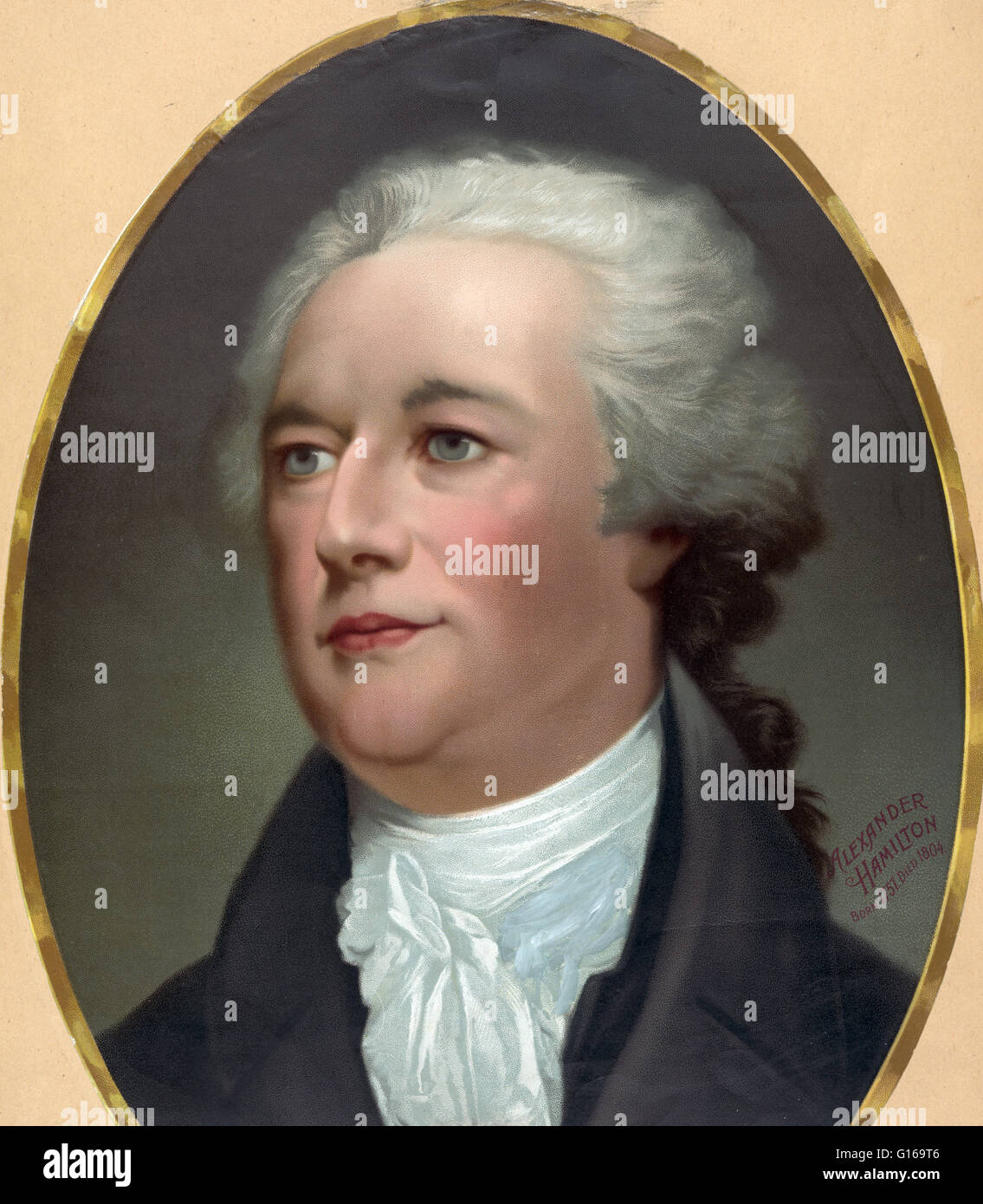Alexander Hamilton (January 11, 1755 or 1757 - July 12, 1804) was a Founding Father of the United States and one of the most influential interpreters and promoters of the Constitution. Born out of wedlock and raised in the West Indies, he was orphaned at

Image details
Contributor:
Science History Images / Alamy Stock PhotoImage ID:
G169T6File size:
29.5 MB (1.9 MB Compressed download)Releases:
Model - no | Property - noDo I need a release?Dimensions:
3000 x 3434 px | 25.4 x 29.1 cm | 10 x 11.4 inches | 300dpiPhotographer:
Photo ResearchersMore information:
This image could have imperfections as it’s either historical or reportage.
Alexander Hamilton (January 11, 1755 or 1757 - July 12, 1804) was a Founding Father of the United States and one of the most influential interpreters and promoters of the Constitution. Born out of wedlock and raised in the West Indies, he was orphaned at the age of 11. He was sponsored by people from his community to go to the North American mainland for his education. He served in the American Revolutionary War. He became aide-de-camp to General Washington. After the war he was elected to the Continental Congress from New York. He resigned to practice law and founded the Bank of New York. He wrote 51 of the 85 installments of the Federalist Papers, which supported the new constitution and to this day is the single most important source for Constitutional interpretation. Under under President Washington, he was appointed the Secretary of the Treasury. He was the primary author of the economic policies of the Washington administration, especially the funding of the state debts by the Federal government, the establishment of a national bank, a system of tariffs, and friendly trade relations with Britain. He was a nationalist who emphasized strong central government and successfully argued that the implied powers of the Constitution could be used to fund the national debt, assume state debts, and create the government-owned Bank of the United States. Embarrassed when an extra-marital affair from his past became public, Hamilton resigned from office in 1795 and returned to the practice of law in New York. When Thomas Jefferson and Aaron Burr tied for the presidency in the electoral college, Hamilton helped defeat Burr. Burr later ran for governor in New York State, but Hamilton's influence in his home state was strong enough to prevent a Burr victory. Taking offense at some of Hamilton's comments, Burr challenged him to a duel and mortally wounded Hamilton, who died within days at the age of 47 or 49.